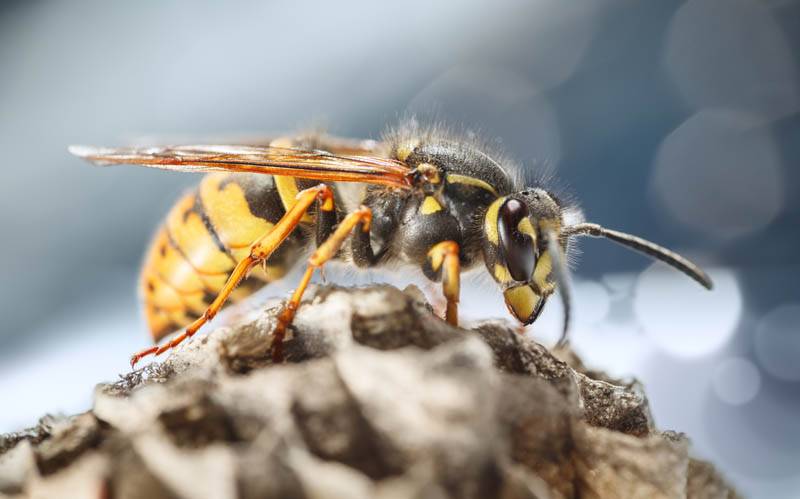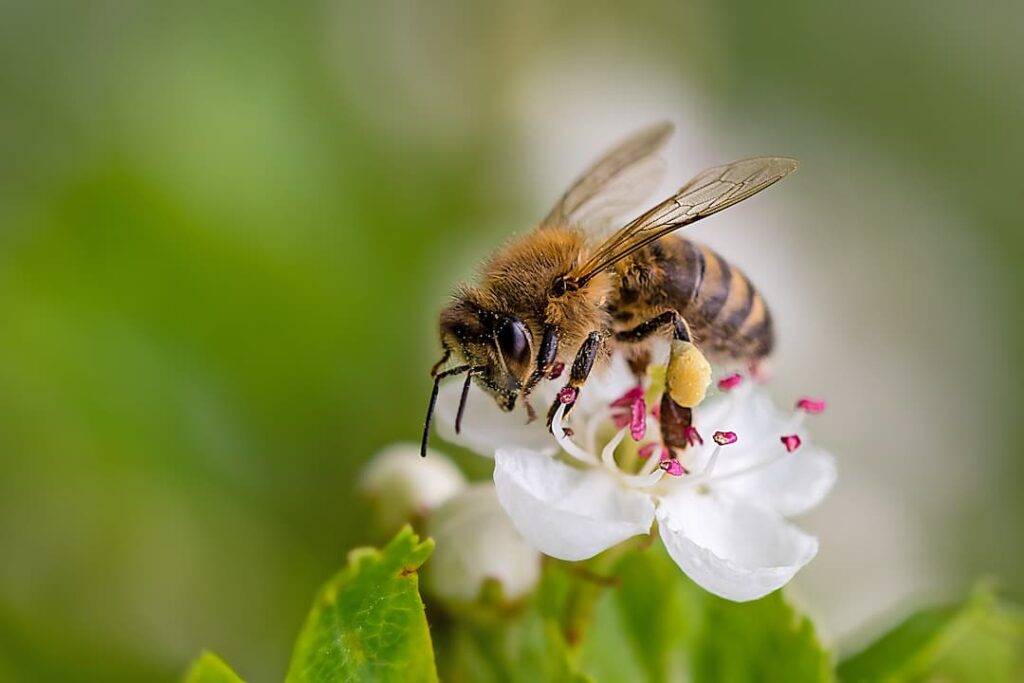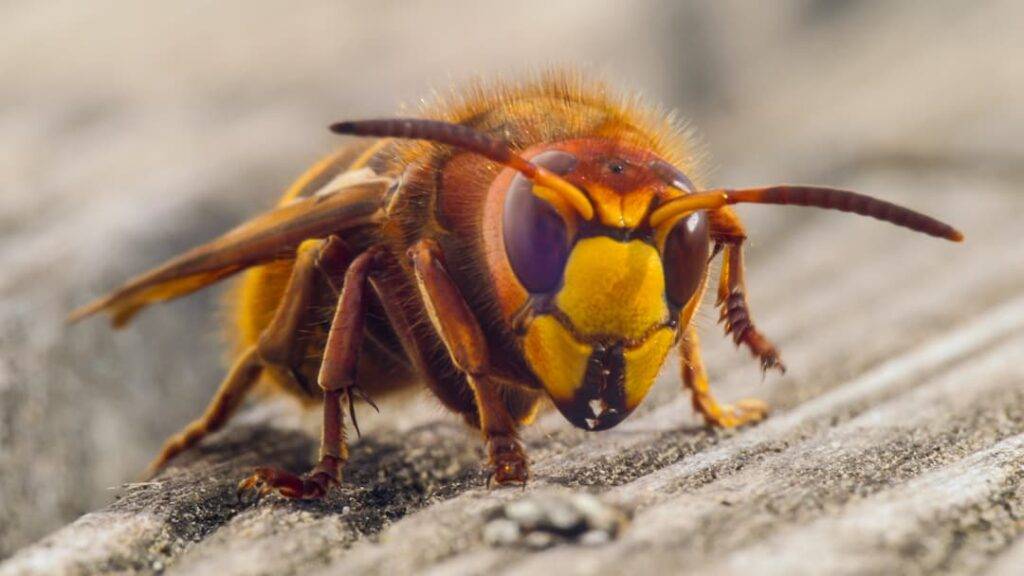A sting may feel and look similar to a bite. However, they are quite different. Stinging insects can leave behind a painful mark. This leads many people to be fearful of them. Allergies to insect stings can also result in dangerous outcomes, so they should be taken seriously.
If you have an infestation of stinging insects, it’s important to call a pest control service to deal with them properly. Not only are they a nuisance, they also pose a risk to anyone who comes into contact with them. For those with allergies, this could have fatal consequences.
Insect Stings
A sting is different to a bite. Only females are able to leave a sting. The sting is a defence mechanism, and is usually only used when an insect feels threatened. It doesn’t always take a lot for them to use a sting. Sometimes, simply walking past a nest is enough.

The sting is used to inject venom under the skin. This is usually painful, resulting in a sharp, burning sensation that can be quite intense. The venom also releases a pheromone. The pheromone will signal to the rest of the colony that danger is in the area, which could result in more stings or even a swarm.
Stinging Insects
There are a few different insects that you could expect to sting you. You’re likely to see them flying around, but sometimes they can sting quickly and leave before being identified. If you have a pest problem with multiple stinging insects attacking your property, there could be a hive nearby.
Wasps
Wasps are commonly seen in the summer. They’re feared by many because they are the most likely to sting. Wasps need little provocation to attack, but they won’t usually make an effort to seek out victims. If you’re near their nest, that could be enough to annoy them.
A wasp sting will case immediate pain, following by swelling and a burning pain. It can also become itchy. You might be able to see the stinger on the surface of your skin. If this is the case, you can use a credit card to scrape it off.

Bees

There are two different types of bees that might sting you. Neither are particularly likely to attack unless they’re disturbed, such as if you sit on one. Bumblebees can sting over and over, whereas honeybees will only sting once. This is because a honeybee’s stinger is barbed. They can’t remove themselves from the stinger without rupturing their abdomen, which results in death.
Bee stings are similar to wasp stings, in that they cause a sharp pain, inflammation and a burning sensation. Some people report that bee stings are more painful than wasp stings. If you can see the stinger, you should try to remove this carefully with tweezers. Don’t squeeze this, as it can spread more venom into your skin.
Hornets
Hornets are much larger than wasps and bees, therefore they carry more venom. This results in a really nasty sting that can be very very painful.
The venom that hornets sting with is quite potent. This means that if you’re allergic to insect stings, a hornet could give you a severe reaction. Much like wasps, they can sting multiple times. If you’re unlucky enough to come into contact with a hornet, try to get away quickly.

Anaphylaxis
Anaphylaxis is what can happen when someone is stung and they are allergic to insect stings. This is a serious, life-threatening medical condition that must be treated properly. It can happen very quickly, so it’s important to know the signs. Check for swelling of the tongue and throat, difficulty breathing or swallowing and wheezing. Tiredness and confusion can also be a sign, as well as feeling faint. The skin may go cold and you may notice the lips turning blue or pale.
If you suspect that you or someone else is experiencing anaphylaxis as a result of an insect sting, call 999 straight away.
If You’ve Got Stinging Insects On Your Property, Call Terminate Pest Control
Stinging insects can be a real nuisance. If you’ve noticed wasps, bees or hornets swarming around your property, don’t delay in seeking professional help. Terminate Pest Control can help to manage infestations. We can remove the hive and take measures to ensure that they won’t come back again. Contact us today for more information.


